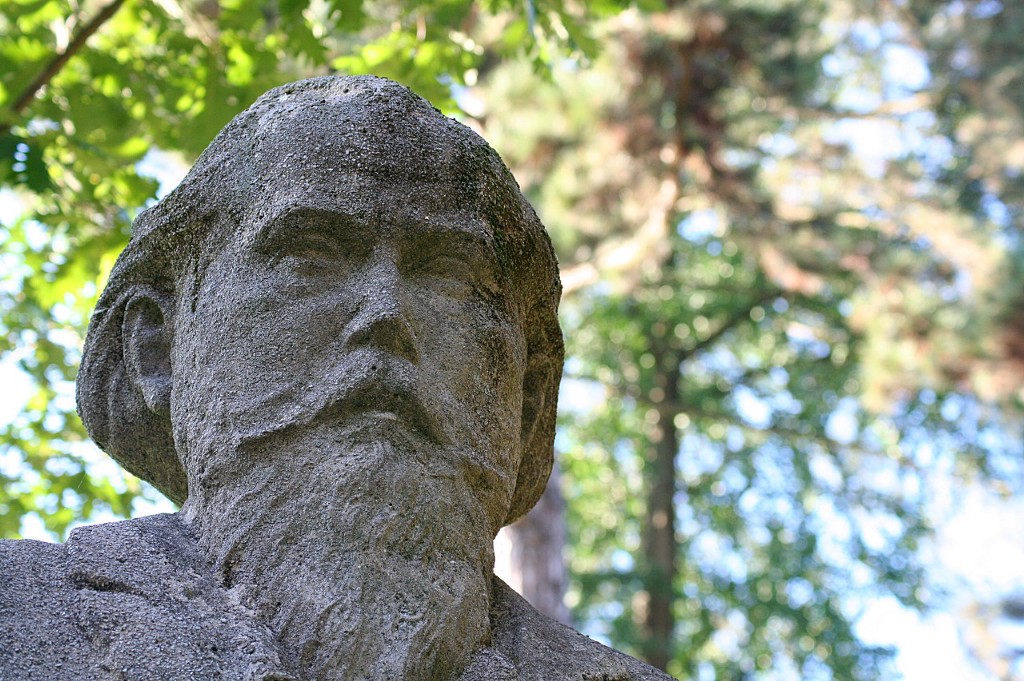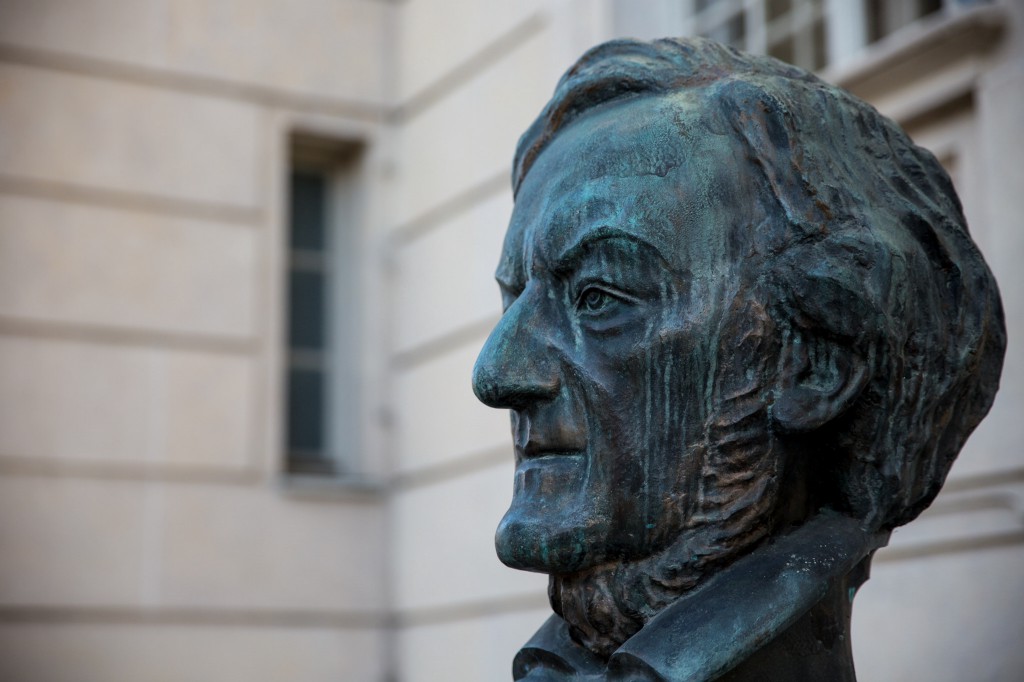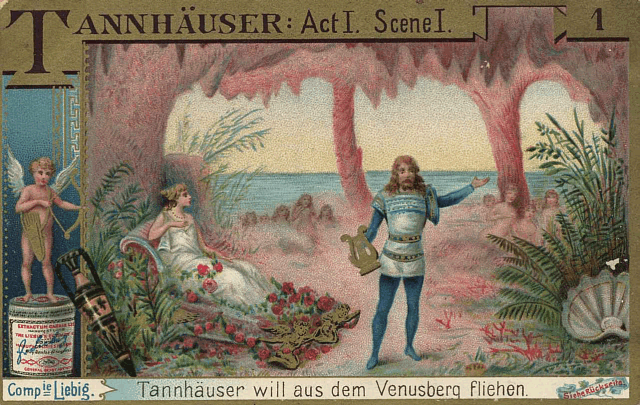Feud Season 3: Brahms vs. Wagner????
Classical Music Hour with Fran


A huge part of my 600-page Brahms book is the various feuds Brahms had with other composers at the time. Feuds are very en vogue right now, and why wouldn’t they be? Our whole country is in a feud. (This is a timely joke.) The deal with Brahms is that I think he was honestly for a time a normal artist type. That’s not to say he was a normal person — artists are not normal people — but he was a Textbook Creative Type, if you will. Sometimes upbeat and charming, other times moody and sarcastic. He was horny all the time, constantly crushing on his female co-workers (uh, choir students), but never seeing anything through. He was also constantly dragging other composers, either in magazine articles or via letters to peers, as this debate in the New German School took hold on central Europe.
The big fight amidst this argument about the New German School (which was not necessarily all new, nor all German, nor was it a school) started with Richard Wagner in an article he published in which he made the case that the truest meaning of music would be to combine it with poetry or the written word. I’m paraphrasing, but basically he said opera is king. This went against those like Franz Liszt who essentially believed programmatic music — music that told a story — was the gateway forward. And then you had conservative folks like Brahms who were like, “Okay… well… I’m just gonna keep composing normal symphonies not necessarily based on anything but melodies I’m interested in right now.”
But not unlike most feuds, the deal with Brahms and Wagner was that they also did kind of like each other. The two met only once in January of 1863, mostly just to play and chat — Brahms was nearly 30 and Wagner nearly 50. They were ultimately respectful of each other, though Wagner got in a few barbs, namely around the fact that Brahms would be nothing without Wagner paving the way. Which, sure! A very natural old-person opinion to have. Like when your parents maintain they’d have been better at school if they had the internet. The two shook hands and departed on pleasant terms, also known as, “Wagner talked shit about Brahms for the rest of his life.”
Wagner has been tricky to write about for this column. His complicated history — the arrogance, the malevolence, the anti-Semitism, not to mention his relatively dark and nationalistic music is often hard to parse through. I, myself, am also not an expert per se on operas, which makes a lot of his work more unapproachable to me. I often conflate him with Mahler, another German composer, whose work I also have a tough time puzzling through.
Regardless, in the early days of writing this column, a dear friend passed along the overture to Tannhäuser (Berliner Philharmoniker, 2003) and I instantly loved it. Because I organize my classical library alphabetically by composer, poor Wagner was often down at the very bottom and the Tannhäuser Overture just sat down there which it really ought not to have.
Tannhaüser is an opera that was written almost 20 years before Brahms and Wagner met. It’s got a pretty classic opera plot: medieval setting, dashing minstrel-knight, goddess of love, all of that jazz. It centers itself in part around a theme of “spring,” but even that’s pretty loose. I think one of the reasons I found myself instantly drawn to Tannhäuser is that it reminds me of a handful of pieces I’ve written about here before. It’s got this pastoral, natural tone not unlike Smetana’s Moldau. A bit of Dvořák’s Slavonic Dances. Because it’s German, we can’t, of course, discount the influence of Beethoven.
The Overture begins with the woodwinds and brass in an optimistic but relatively dense melody. It builds, adding strings, and at its first big crescendo around the 2:11 mark, you can really feel the depth and scope of the Tannhäuser. There’s some immense power behind this crescendo. The horns blaring over the strings descending down their scales. When the strings overtake the horns at the 3:07, their melody is intensely wistful, almost in mourning.

Because it’s an overture, it touches on quite a few different themes. It’s a little jarring sometimes — in the way that a normal Broadway overture would have some tonal whiplash from time to time. Around the 8:40 mark, it slides into what sounds like a dance. It’s simultaneously upbeat and worrying, as if Wagner is building to something you can’t predict. With a big roll of the timpani, he ushers in a jovial climax that you can almost bop your head along to.
That’s the thing about Wagner for me. Even without knowing Tannhäuser, it immediately seemed to familiar to me. Wagner is so ingrained into our classical musical landscape — I mean, we all know this guy, but come on — that it’s impossible to listen to him and not feel a deep sense of familiarity. For all of his snark towards Brahms for “making him what he was,” be it direct or indirect, Wagner did kind of shape classical music in a world beyond Beethoven. He also didn’t like Jews! The world is rich and complicated and stupid.
A year after they met, Wagner was preparing to do Tannhäuser in Munich and learned that Brahms, in fact, was the person with the deluxe manuscript of the opera, given to him by a mutual friend. Wagner and his associates were furious that the score had ended up in Brahms’ hands and demanded it back for the performance. Brahms refused.
Fran Hoepfner is a writer from Chicago. You can find a corresponding playlist for all of the pieces discussed in this column here.
